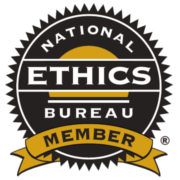Why 401(k) Decisions Matter
Fewer companies offer pensions today than did for earlier generations, and that means 401(k) accounts remain important for many people as a source of retirement income.
Here’s an interesting twist: Because 401(k) accounts are generally tied to jobs, Americans’ increasing trend of working more jobs over the course of their career can mean that 401(k) rollovers are more common and more important to handle properly.
Bureau of Labor Statistics research shows that younger baby boomers averaged almost 12 different jobs between the ages of 18 and 48.1 When switching jobs, you can make a decision about rolling over your
401(k), but often you don’t have to. Sometimes, not deciding is the equivalent of deciding to leave your 401(k) where it is, with its existing allocation and fees. It all depends on the employer plan.
Let’s say you’re one of those people. Even if you only invested in 401(k) accounts at half of those jobs, that’s a lot of accounts to, well, account for. Knowing the rules surrounding rollovers can be important.
It can be helpful to frame this discussion by talking about the way that 401(k) accounts are tax advantaged. One way to explain it is this: When you put money in a 401(k) account, you are essentially making a deal with the government. The government lets you put the money in without paying taxes on it and you agree to leave the money there until you retire (or are at least close, which the government defines as age 59½). If you take the money out early, you aren’t keeping your end of the deal and the government hits you where it hurts: your wallet.
To be clear, you’ll be taxed when you take money out of your 401(k) regardless of when you do it. The penalties only come into play when you don’t wait until the agreed-upon age to take those withdrawals, with a few exceptions. The exceptions include total and permanent disability, loss of employment when you are at least age 55 and a qualified domestic relations order after a divorce.2
The combination of taxes and penalties may be especially painful if you decide to withdraw money from your 401(k) early. After taxes and penalties, you may be left with only two-thirds of your account balance. Plus — particularly if you are young — you’re sacrificing the potential growth that could come from keeping your money in a retirement account.
So, while it might be tempting to consider your 401(k) a windfall, you would want to think very carefully about cashing it out.
While you can’t avoid taxes (other than the few exceptions mentioned earlier) you do have some control over when and how you’ll pay them. Here’s how: Your 401(k) distributions are viewed by the IRS as ordinary income; that’s true whether you take $1 out of your account or $1 million. If the amount of a distribution pushes you into a higher tax bracket, you can end up paying a higher tax rate on every dollar that falls over that threshold. That hurts.
Everyone’s situation is unique, but there are a few ways to help limit potential tax impact. You may have heard many of your friends and family members talk about taking their tax-deferred distributions over time in smaller amounts. Another solution is balancing withdrawals from tax-deferred accounts and tax-advantaged accounts, like Roth IRAs or properly structured life insurance policies. Since those accounts include money that has already been taxed, it won’t be treated as ordinary income and could help you control your tax bracket later in life. After all, much like in life, it’s not about the money you make but the money you keep.
Talking to a financial services professional can help you determine if your 401(k) is working for you. No matter what, it can’t hurt to be informed!
1 https://www.bls.gov/nls/nlsfaqs.htm#anch41
2 https://www.irs.gov/retirement-plans/plan-participant-employee/retirement-topics-tax-on-early-distributions

